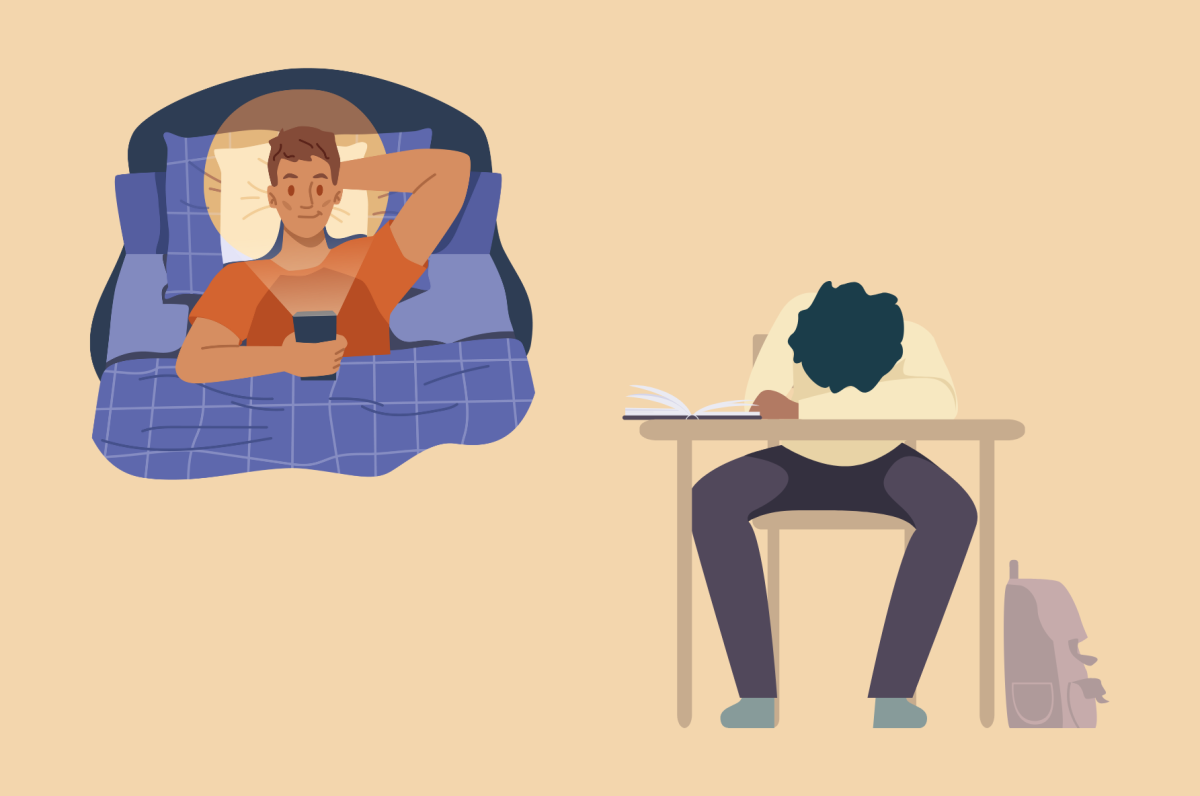School can be frustrating for students for many reasons, a common one being the sleep troubles that many students have. Whether doing homework, gaming online with friends, or scrolling through social media, many students have trouble getting to bed early enough to feel well-rested by the morning. According to a 2015 study by the Centers for Disease Control (CDC), teenagers need at least eight to 10 hours of sleep every night, but 72.7% of high school students did not sleep this long every night.
Over the summer, students do not have to wake up at a certain time, so they allow their bodies to operate on their own sleep schedules. This is called the body’s circadian rhythm, which tells the body when to go to sleep and when to wake up. Having to
wake up and go to sleep earlier disrupts the circadian rhythm, making it harder to fall asleep and wake up in time to feel well-rested for school.
University of California, Los Angeles Health (UCLA Health) says that teenagers’ circadian rhythm is naturally set to go to sleep and wake up later than adults and younger children. Some people think that if they sleep in on the weekends, they will catch up on the sleep they have missed, but in reality, this just throws off their circadian rhythm more.
If teens use electronics before bed, falling asleep may be more difficult. That is because electronics, such as phones, computers and televisions, emit blue light. Blue light tricks the brain into thinking it’s daytime by stopping the release of melatonin, the hormone that induces tiredness. According to the Sleep Foundation, teenagers are more sensitive to this kind of light. Many teens are completing homework on school Chromebooks or even phones late at night, exposing them to blue light.
If teens do not sleep enough at night, they may feel too tired to get out of bed in the morning. Teens often battle the urge to sleep in, which can disrupt their morning routine and even make them tardy to school.
This further leads to trouble with focus, memory, and concentration, causing teens to do poorly on homework and tests, or struggle to learn new things at school. Students may also need more energy for sports or other physical activities. Some people think that if they sleep in on the weekends, they will catch up on the sleep they have missed, but in reality, this just throws off their circadian rhythm more.
Sutter Health says everyone should avoid screen time at least one hour before bed, and caffeine at least six hours before bed. Sleep without electronics in the room, or turn off notifications before sleeping. People can also do breathing exercises, yoga, or meditation to relax.
School can cause lots of issues with sleep, and there are many reasons why. The good news is that there are also many easy ways to treat or even avoid sleep issues. By knowing how and why sleep deprivation happens, people can easily prevent it and enjoy the benefits of being well-rested.



